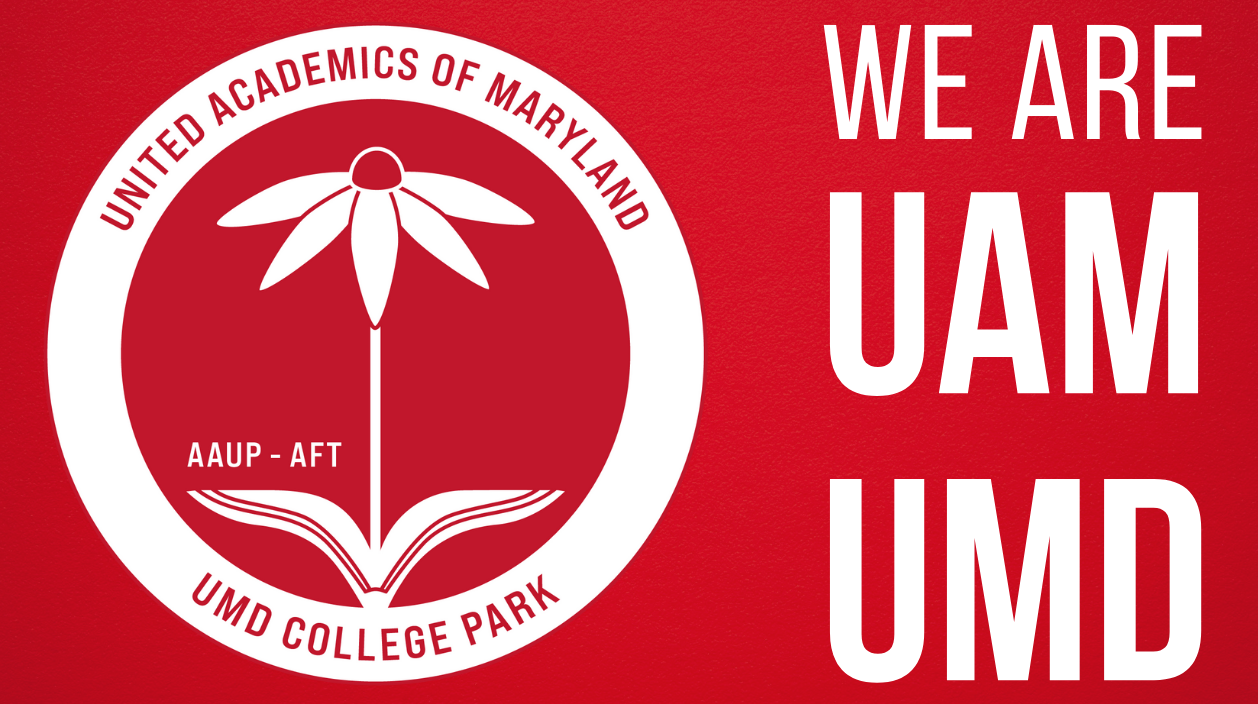Open Letter to President Darryll Pines:
We, the undersigned, write to express our grave concern about recent University of Maryland’s policy changes regarding free speech.
In the last year, the university administration has banned university departments from issuing statements, made two revisions to the “expressive activities” policy by fiat, and canceled previously approved student events for October 7th (for which it is now being sued).[1]
We are concerned about both the manner in which these policies were formulated and the additional restrictions on campus free speech they impose. We are calling for these changes to be suspended and for a task force—composed of faculty, staff, and students—to assume responsibility for formulating a new policy and creating equitable mechanisms for adjudicating and enforcing it.
Manner
University leadership has formulated and instituted all of these new restrictions on free speech without consultation with or approval of the University Senate, much less wider student, faculty and staff involvement. Although the new policy will be eventually discussed in the University Senate, it has been made effective immediately and without a clear timeline for action.
“Freedom of thought and expression are the lifeblood of our academic community,” as President Pines said in his August 26th email announcing the most recent changes to the expressive activities policy. For this reason, changes to policies governing faculty, staff, and student expression should only be enacted after considerable deliberation and consultation with students, faculty, and staff. This should be done through the university’s shared governance mechanisms, which approved the university’s prior Statement of Free Speech Values, which was generated by a Task Force and widely debated across campus. The President’s office should not impose new policies by fiat.
Content
UMD has the ignominious honor of being part of a tidal wave of university administrative efforts aimed at clamping down on free speech. UMD first banned its departments from issuing their own statements—a common practice that had never been censored prior to the Women, Gender, and Sexuality Studies Department’s November 2023 statement on the war in Gaza.
There are also numerous troubling features of the new time, place, and manner restrictions. In the name of security, campus tranquility, and civility, it erects myriad barriers to freedom of expression, from seven-day long lead times for event registration to a dizzying array of rules micromanaging where and how protests and other “expressive activities”—such as chalking or putting up posters—can take place.
Equally troubling is the lack of clarity on who is ultimately granted the power to adjudicate these new policies and determine and punish violations thereof. The policy mentions various institutional actors, such as the Event Coordination Team, Stamp Event & Guest Services, Vice President for Student Affairs, or pithily just “the University,” as having these powers in different contexts. But who is making the final call when a group plans what some regard as a controversial “expressive activity”? Who exactly is determining in these cases whether an expressive activity is “safe[],” “civil[],” “disrupti[ve],” or “threatening or intimidating”? These decisions should be made by a committee of faculty, students, staff, and administrators who respond to conditions on our campus rather than the concerns of outsiders.
President Pines’ recent summary cancelation of the UMD Students for Justice in Palestine (SJP) and Jewish Voice for Peace’s (JVP) October 7th vigil for Palestinian victims of Israel’s ongoing attacks on Gaza is a case in point. Who decided this event deserved to be canceled? And on what grounds? The university approved it over the summer via the normal process for registering student events before canceling it under heavy pressure from outside groups. This raises disturbing questions about the transparency and equity of this process and its susceptibility to outside political and donor pressure.
To protect freedom of speech at UMD, we demand (1) the suspension of the new Presidential amendments to the expressive activities policy, and (2) the formation of a new “Expressive Activities Policy Task Force” that will be composed of students, faculty, and staff from a range of campus constituencies and be charged with formulating a new policy and designing a transparent and accountable system for adjudicating its application in the future.
Signed:
United Academics of Maryland-UMD Executive Committee (UAM-UMD)
UMD Graduate Labor Union (GLU) Organizing Committee
United Terps Against Sweatshops (USAS local 54, UMD)
Political Latinxs United for Movement and Action in Society (PLUMAS)
Black Faculty Staff Association (BFSA) of the University of Maryland
University of Maryland Faculty and Staff for Justice in Palestine (UMD FSJP)
Young Democratic Socialists of America (YDSA), UMD Chapter
Students for Justice in Palestine (SJP), UMD
Jewish Voice for Peace (JVP), UMD
Pride Alliance Board, UMD
Notes:
[1] This statement was drafted and signatures collected before the federal courts issued an injunction ordering UMD to allow the events initially scheduled for October 7.

